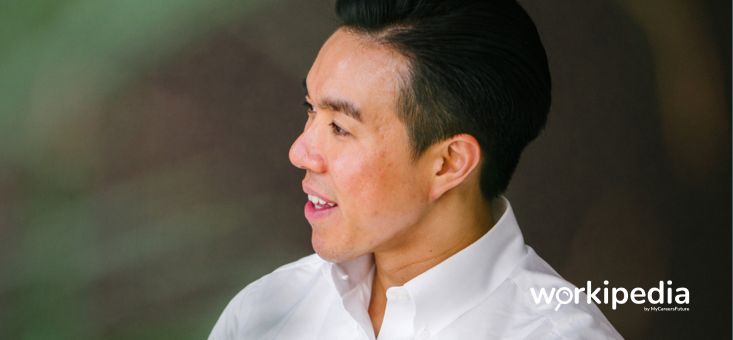It’s not just interviewees who feel the pressure of a job interview! In order to ensure a successful interview process, interviewers also need to be well-prepared. Kristina Lee, Consultant, Business Support, Robert Walters Singapore, Vinod Balagopal, Director, Gary and Pearl International Pte Ltd and Tommy Ng, Founder and Chief Guru, HR Guru Pte Ltd share what it takes to conduct a smoother job interview.
What interview formats are preferred in Singapore?
Vinod: It’s important to study the requirements of the job and the interviewee’s credentials in order to choose the interview type that best suits the company needs. One-to-one interviews allow the interviewer to get to know a candidate more personally. Panel interviews let the interviewee meet several members of the company involved in the hiring decision; while in group interviews, front-runner candidates are invited to an informal discussion to uncover their leadership potential. Other interview formats include video conferencing and presentation interviews, which can be used as an effective screening mechanism.
What is the best way to start an interview on the right note?
Kristina: Interviewers should begin with a good introduction to themselves and the organisation, then explain the structure of the interviews — if there are several rounds, what the candidate can expect, and what the interviewer(s) would like to achieve from the meeting. For example, “Thank you so much for coming in to meet with me. I want to get to know you a little bit better, find out your experience, your strengths, your weaknesses, what you’re expecting, and to see if there’s going to be alignment with the role that we have on offer.”
Setting a very clear agenda helps job candidates feel more comfortable.
What helps to make an effective interviewer?
Tommy: Always come prepared — it’s actually the same advice we as recruiters give to job candidates. Interviewers should always study the job requirements before the interview, so they know the qualities and skills required. If it’s the HR manager who’s conducting the first interview or the interviewer is hiring for a team or company, it’s important to talk with the line manager who is looking to fill that role. For instance, find out the key qualities they are expecting applicants to possess. Interviewers can also speak to team members who are in similar roles or in the same department. Questions to bear in mind here include: what takes up most of your time in your role, what do you like and don’t like about your role?
Interviewers should also study the candidates’ resumes before the actual interview. They should take notes about particular details or questions they have based on the applicant’s resume, such as why they left their last job in less than a year but have a strong testimonial from that company.
What sort of interview questions should be asked?
Vinod: Having a list of questions prepared before the interview will ensure that interviewers explore the key skills, strengths and weaknesses of each candidate. It also sets the tone of the interview. Start with questions that will put the candidate at ease such as those that probe their background and interest in the position. Get them to tell you how they see themselves in relation to the job and what they can contribute.
In addition, it is useful to have a specific set of questions for all applicants as this helps you to compare candidates, allowing you to pinpoint those whose skills and abilities most closely match what you are looking for; an example might include: “What was the most challenging aspect of your last job?” Include more specific questions that are tailored to each candidate’s resume. It may also be helpful to ask some open-ended questions that require more than a “yes” or “no” answer, such as: “Describe an achievement at your last firm of which you are particularly proud.” This may allow you to uncover more information on the candidate. Some companies also include behavioural-style questions that relate to situations the candidate may face in the position being applied for, such as: “How would you go about building team spirit in your team?”
Here’s a list of some of the most common interview questions:
- Can you tell me a little bit about yourself?
- Tell me what you know about our company.
- Why do you want this job?
- Why should we hire you?
- Can you share an example of how you handled a stressful situation?
How should interviewers best answer a candidate’s questions?
Kristina: Do your due diligence beforehand — candidates come to the interview because they want to find out if there is going to be alignment and fit with the role. They often want to understand more intangible qualities of the role such as the team or the company culture, which is information not available on the organisation’s website. Examples of this could include how you value an independent work nature or how the company places emphasis on teamwork and collaboration. These can really sell your company to a candidate and might make the difference between a strong candidate joining your team and your competitor’s. It’s not about sugar-coating your company but about providing an accurate depiction of your workplace, the environment, the people and the company culture.
What are the top tips for interviewers?
Tommy: Avoid relying on your memory — take simple notes. This will ensure you don’t judge a candidate too soon. It’s advisable to wait until the interview is over to make an evaluation and assessment; this way, you don’t rely on first impressions.
Many companies don’t really have good post-interview etiquette — they forget to inform candidates of the next steps in the interview process. For example, “There are still more candidates to see but expect to hear from us within the next two weeks.” It’s also common courtesy to inform a candidate if they do not secure the job.
Find better candidates for your job openings on MyCareersFuture!
Not getting enough job applicants? Act now by inviting candidates to apply for your job post! Here’s how to use “Suggested Talents” on MyCareersFuture:
- Log in to MyCareersFuture with your Singpass
- Navigate to your existing job post, and click on ‘Suggested Talents’ (next to ‘Applicants’)
- Browse the list of talents, shortlist the best ones, then invite them to apply for that job by clicking on ‘invite to apply’














